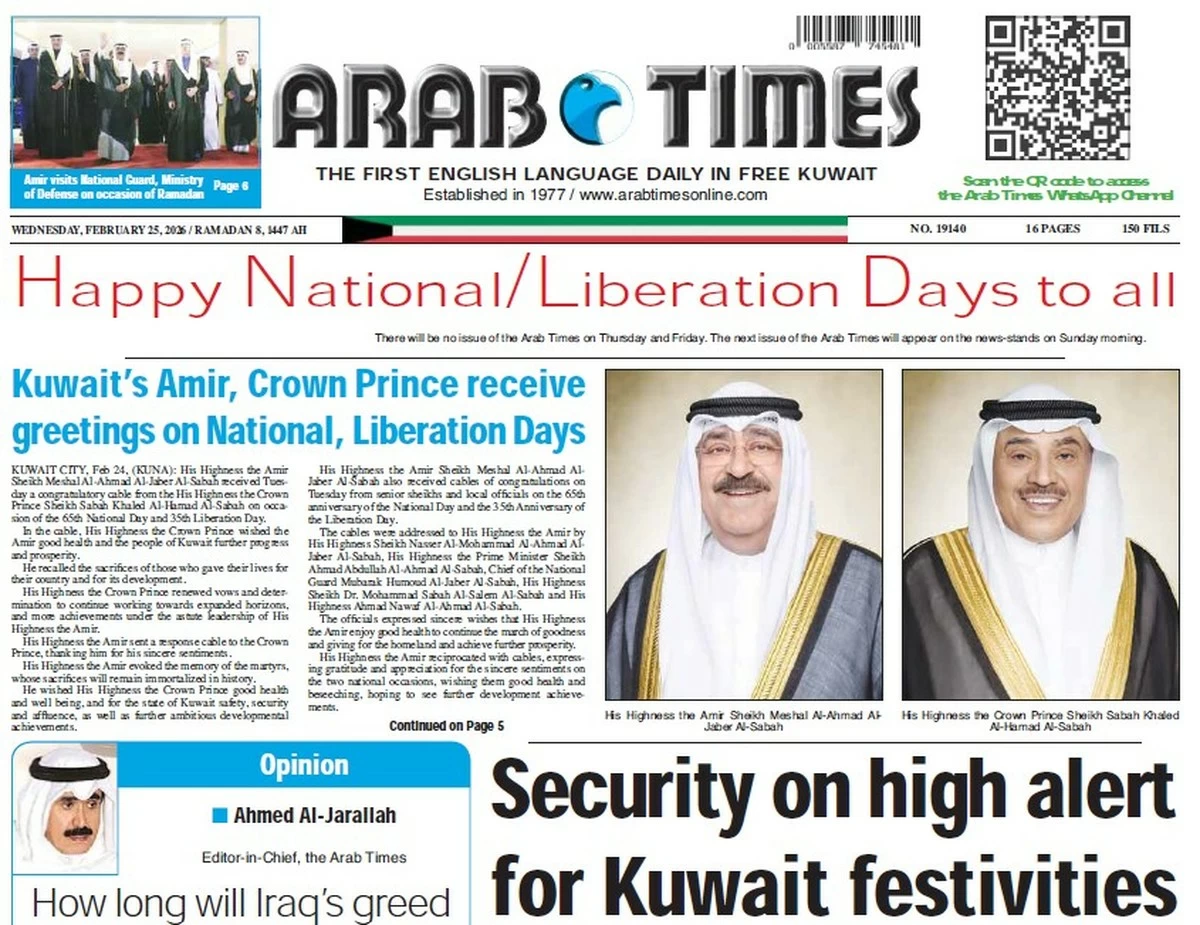23/09/2024
23/09/2024
EVERY state ministry and institution has a public relations department that is responsible for engaging with the public and promoting the institution. All state offices, including the presidency and government, are required to have an official spokesperson.
However, it seems the current Council of Ministers aims to change this long-standing practice by designating “KUNA” or one of its staff members as the official government spokesperson.
This implies that the public relations departments within the ministries, along with the Ministry of Information and its massive number of employees, have nothing to do other than checking in and out of work, playing with their cell phones until the end of their shift, without any real accountability.
As a result, it seems we have reverted to the “you scratch my back, I scratch yours” mentality that has brought about many disasters for the nation.
In contrast to the “wasta” mentality, countries that prioritize their legal systems assign tasks to experts and specialists.
An official spokesperson should be well-versed in all aspects of their institution where they work, and surround themselves with a select group of highly qualified individuals who are capable of addressing challenging questions with grace.
Every foreign ministry worldwide has a spokesperson who can communicate with the media and conduct daily press conferences.
No ministry should evade questions from the public, even if those questions are based on hearsay. In our nation, inquiries are often not redirected to the courts, as there are always those willing to challenge the status quo.
Over the past two months, social media has become a major source of hearsay regarding various issues and decisions, leading to public anxiety. This was quite evident when rumors began to spread about the end-of-service benefits for employees nearing retirement.
Due to the concerned authority’s delayed response in providing clarification, a significant number of individuals opted for early retirement, resulting in negative consequences for many.
Weeks later, a hesitantly released clarification failed to satisfy the staff, instead only deepening their confusion and allowing the rumor to persist.
Furthermore, the malfunction in the Ministry of Health’s “system” went unreported, with no official from this sensitive ministry stepping forward to explain what had occurred, making it seem as if the incident took place in another country. The full extent of the harm suffered by citizens remained unknown.
The same confusion surrounded the Kuwait-Iraq match during the World Cup qualifiers. Speculation began to rise regarding the Kuwait Football Association, creating an impression that accountability was being addressed, yet the matter remained unresolved.
On the contrary, the ministers seem preoccupied with investigating dubious accounts, most of which originate from outside Kuwait and are nearly impossible to shut down.
To counter rumors, a counterattack through the timely dissemination of accurate information is necessary. If a rumor turns out to be true, it is important to address and correct the situation swiftly.
Unfortunately, the current Council of Ministers appears to be adopting the same strategy as its predecessor, resulting in zero effort in this area.
This reflects a form of corruption that we were hopeful that we had started eliminating through a precise reform process, which is by activating the role of public relations departments in all state institutions, appointing official spokespersons, and refraining from outsourcing the communication aspect to third parties whose goals may not align with those of the ministers and the Council of Ministers.



